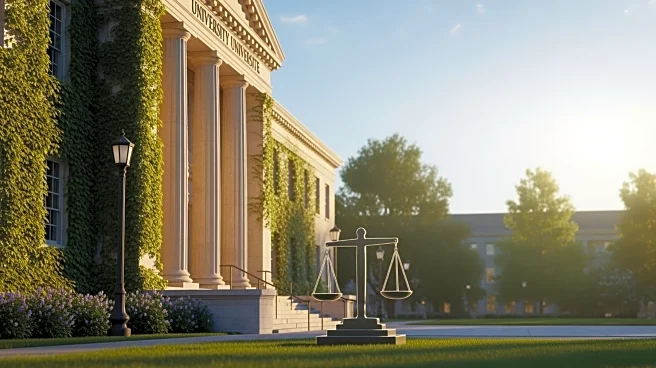What's Happening?
The University of Virginia (U-Va.) is reportedly close to finalizing a deal with the Trump administration to resolve multiple investigations into its diversity, equity, and inclusion policies. This potential
agreement marks a significant development as it could be the first of its kind between a public university and the Trump administration, which has been actively scrutinizing higher education institutions. The negotiations, led by U-Va.'s interim president Paul G. Mahoney, aim to address alleged violations in areas such as hiring, admissions, and handling of antisemitism. The Justice Department had previously warned U-Va. of possible punitive measures, including the loss of federal funding, if corrective actions were not taken. The university's former president, James E. Ryan, resigned amid these pressures, although the Justice Department denied demanding his removal.
Why It's Important?
This development is significant as it highlights the Trump administration's broader efforts to influence policies at higher education institutions across the United States. The administration's focus on diversity, equity, and inclusion policies has led to increased scrutiny and pressure on universities, prompting some to alter their policies or face financial penalties. The outcome of this deal could set a precedent for other public universities facing similar investigations. It also underscores the ongoing tension between federal oversight and institutional autonomy in higher education, with potential implications for how universities manage diversity and inclusion initiatives.
What's Next?
If the deal is finalized, U-Va. will not face financial penalties or federal monitoring, unlike some private institutions that have reached agreements with the Trump administration. The university has already taken steps to comply with administration directives, such as dissolving its DEI office. However, the broader implications of this deal could influence ongoing and future negotiations between the Trump administration and other universities. Stakeholders in higher education will likely monitor this situation closely, as it may impact federal funding and policy compliance strategies across the sector.









